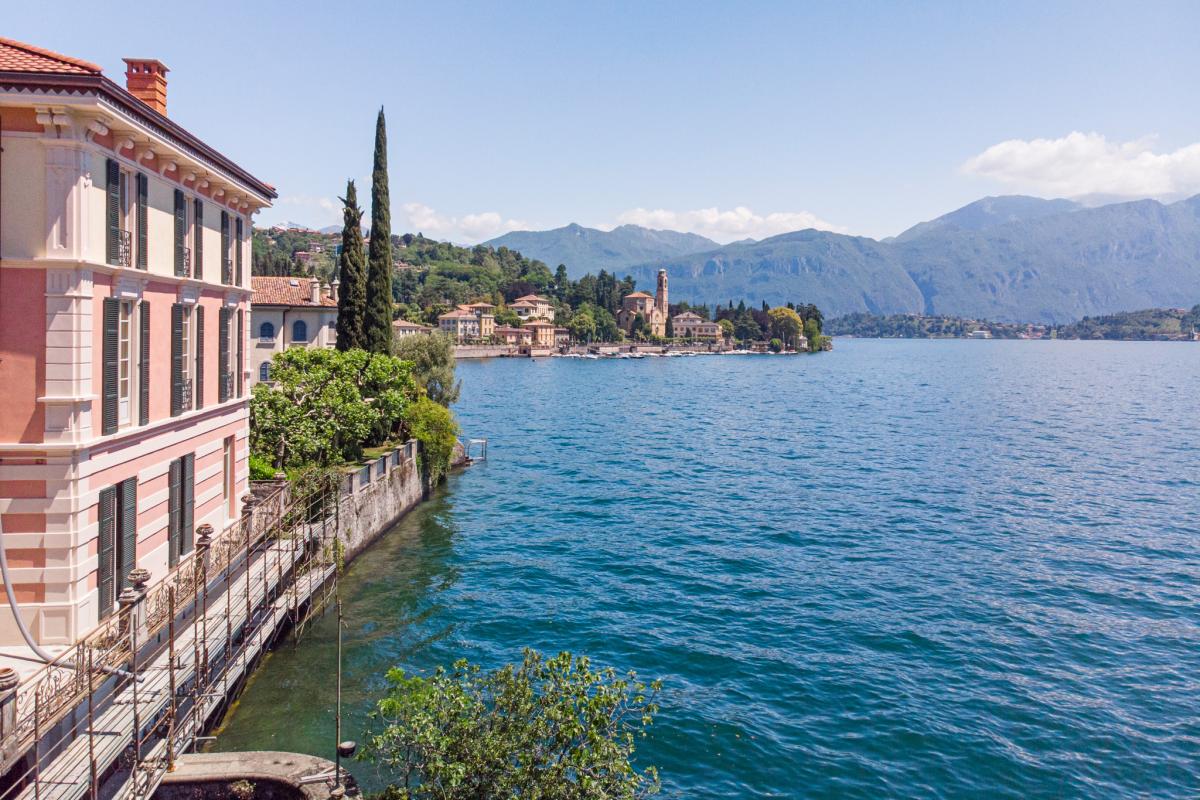

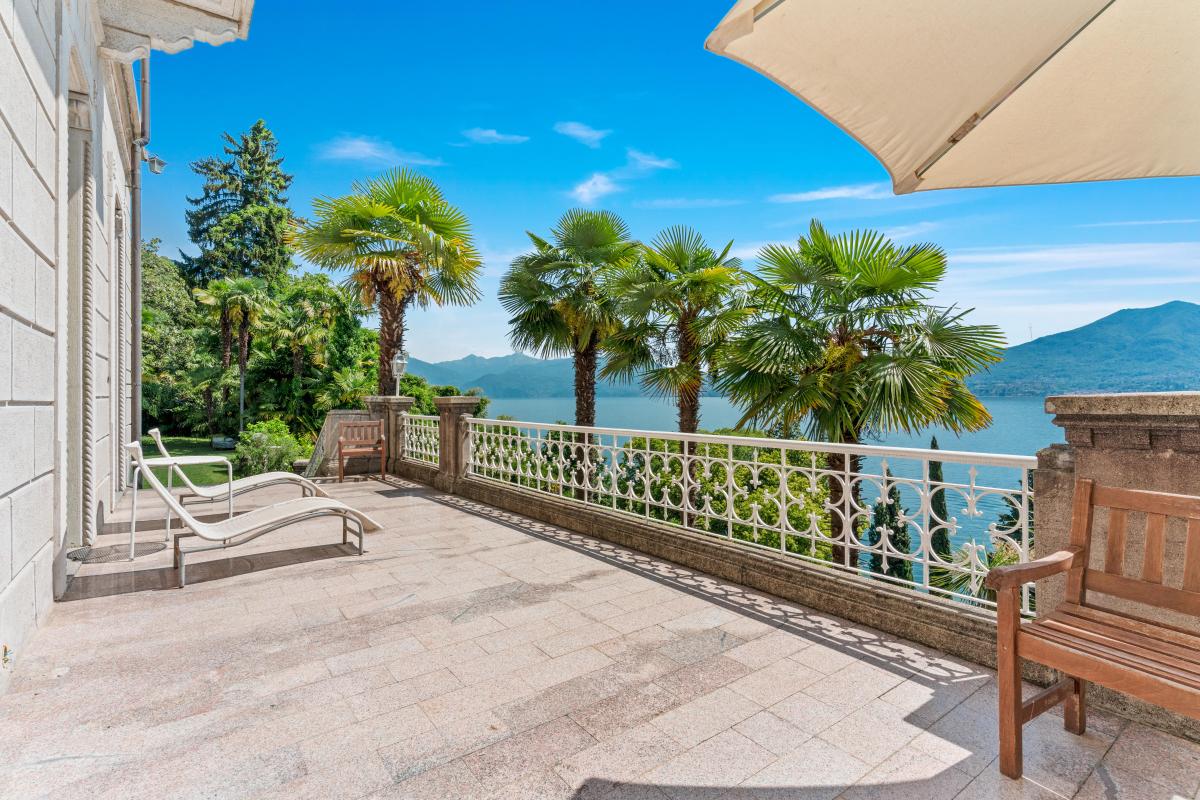
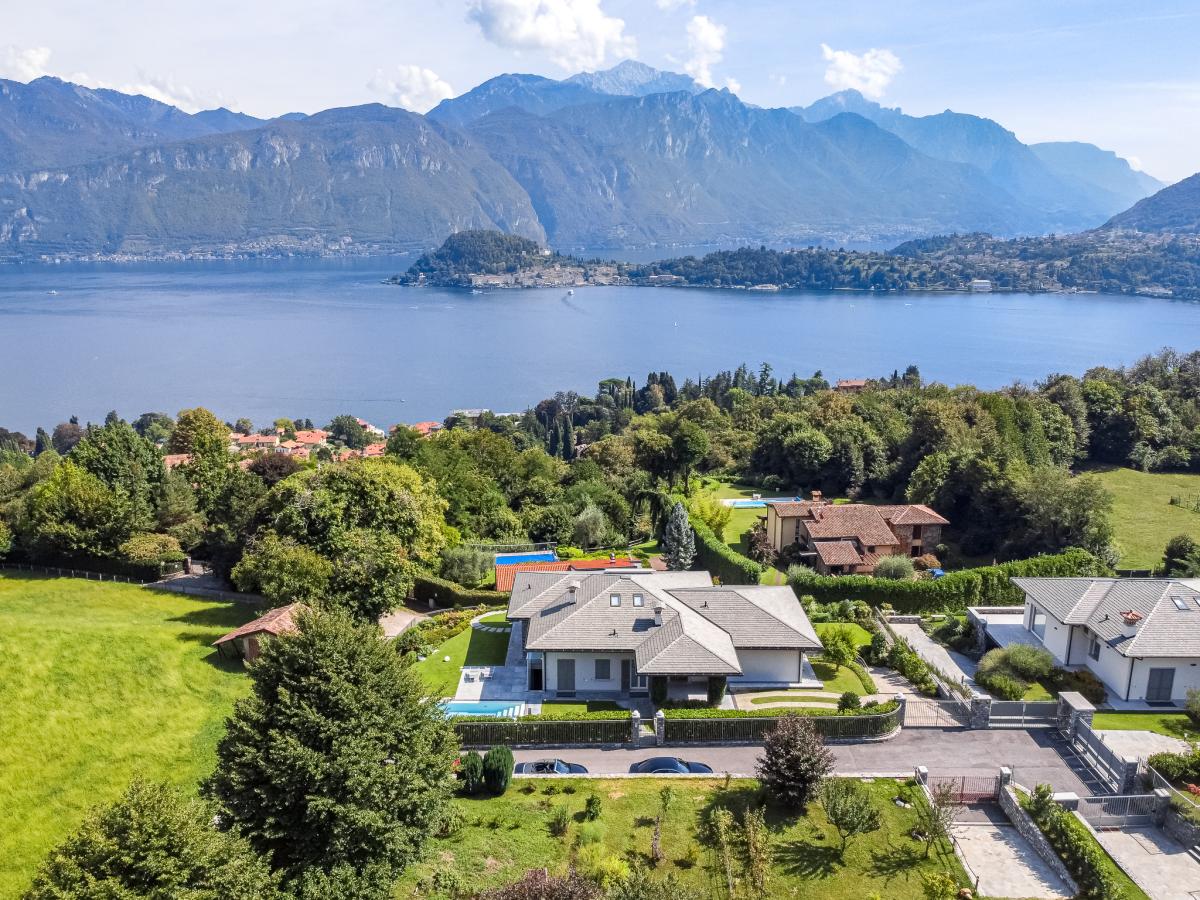
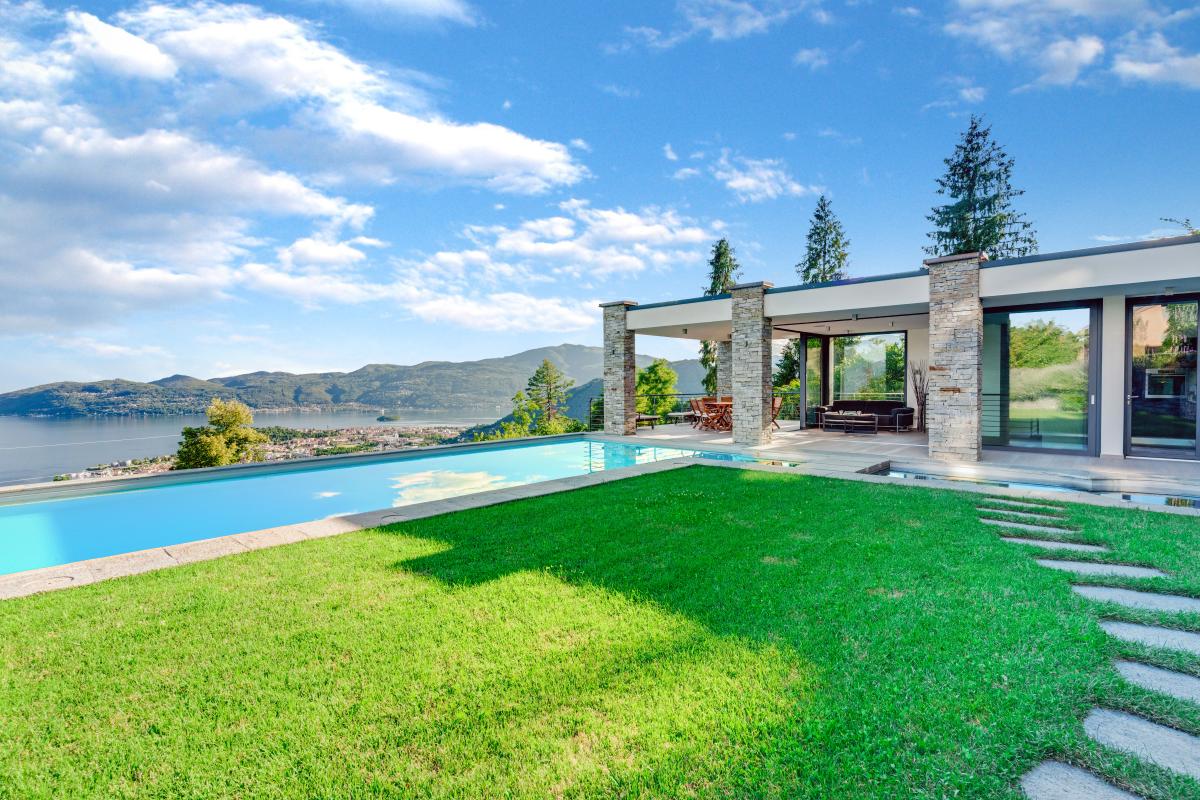
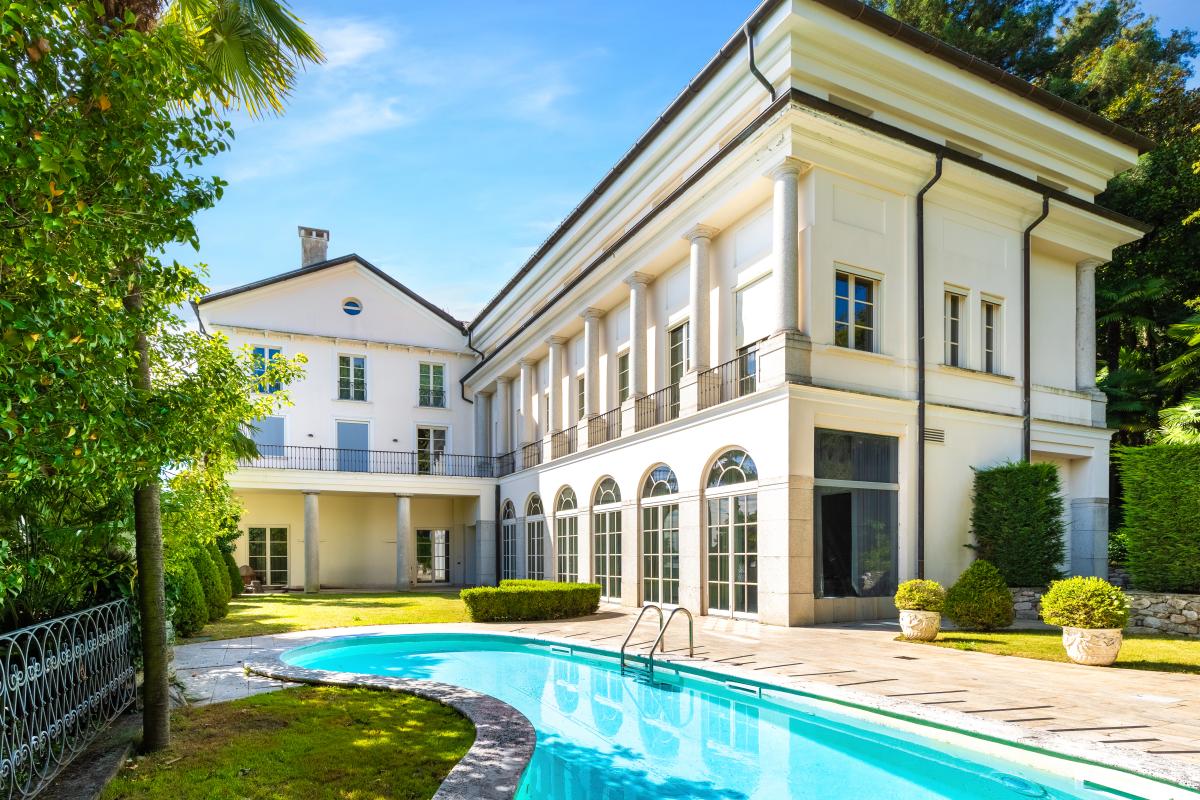
What luxury properties are there in Italy and how can we buy them? Our experts share more in this blog post!
More and more Bulgarians have the desire to buy a luxury home abroad, and spurred on by rising inflation, are combining their desire with investment intentions to own a property abroad where they can invest their money in something safe and lucrative. Others choose to buy a property outside Bulgaria in order to own a luxury holiday property in another country, which will provide them with a more attractive and exotic holiday than that in Bulgarian resorts.
Residential property in Italy has always ca attracted foreign investors. The factors that determine this phenomenon are tax incentives, relatively lower property prices and the potential for quality real estate investment. Buyers are mainly looking for sunny and beautiful locations when it comes to buying a second home in Italy.
Umbria and Tuscany are considered to be the most popular areas in Italy for buying real estate, as they are defined as the "green heart" of Italy. Suburban properties are very popular with all categories of buyers, with older families and young people with children preferring to invest in second homes in these locations.
Also, private investors in Italian property choose the central and northern regions of the country, such as the Adriatic coast, in Liguria, on the Venetian or on the Tuscan Riviera. Property prices in these locations are high, but it is these parts of the country that are distinguished by both a high level of tourist services and a high standard of living. These characteristics make them attractive not only for those who like comfortable holidays, but also for those who buy a home with the aim of permanent residence in Italy. According to data from Italian real estate agencies, there is also an increase in interest in the Milan area and also around Rome.
As we noted, home buyers in Italy have certain goals, with Italy being a favourite holiday destination for some, others like the country's natural features, traditions and local cuisine. Others are attracted by the high standard of living and the huge prospects for developing a successful business in this country. But what unites them all is that buying a home in Italy means a secure and long-term investment in a quickly liquid property, in one of the most developed European countries.
Buying real estate in Italy, including a luxury villa, is not a difficult task, but like buying property in Bulgaria, it requires advance preparation, market research, familiarization with the legislation in the country.
As we said, before proceeding to buy a property in Italy, it is a good idea to research the market and also the economic conditions in the country at the moment. It is advisable to weigh up the pros and cons of investing in a villa in this country, according to your individual capabilities and long-term financial goals.
You should also be aware that Italian law does not impose restrictions on the purchase of real estate in the country by foreign nationals, but any financial proceeds from another country used to acquire a home in Italy must be officially declared to ensure that the proceeds from a resale can be repatriated.
The first step you should take is to hire a local lawyer to protect your interests, even though the conveyancing process is regulated. It is he or she who will help you become familiar with the specifics of the Act, one of which is the pre-contractual liability of the parties. For example, in case you feel dissatisfied with the seller's attitude, you can file a claim for reimbursement of expenses to date.
Another important feature is that once you have selected the property you wish to acquire, you must make an offer to the seller and pay 1% of the advertised price as a gesture of good faith. However, it is not binding on the seller, and it is a good idea to set a time limit in the offer for the seller to decide whether to accept it.
Making an informed choice about location is an extremely important step, as different areas in Italy have different atmospheres according to the specific needs of buyers.
Of course, after selecting the location, comes the time to select properties to view. Here it is important to specify that you need to submit as much information and search criteria as possible, so that the real estate agent you choose to work with can be as helpful as possible in making a selection tailored to your requirements. The more you clarify for yourself what you are looking for, what you can compromise on and what you can't, the easier the process of finding the right luxury villa property for you will be.
If you have specific criteria, do not hesitate to share them with the competent broker, as he knows the market in depth and what is currently available on it and will be able to offer you villas that meet as close as possible to your needs and requirements.
It is considered that pre-renting a property for a certain period, in your chosen area, is a proven approach over the years, as this will ensure that the place, the atmosphere it brings and conveys, the people and the infrastructure are really what you are looking for.
If you have already chosen the right luxury villa for you, the next step is to sign the contract. It can only be validly concluded in front of a notary. If you are not fluent in Italian, the notary will not draw up the contract because he cannot guarantee that you, as the buyer, have understood the conditions contained therein. This obstacle can be overcome by getting a reliable and licensed translator or lawyer who speaks Italian and Bulgarian to represent you before the notary. You can also give a formal power of attorney to a person you trust, who speaks excellent Italian and who will sign the contract on your behalf.
If the seller accepts the offer you have made, the deal becomes binding on both parties. The preliminary contract is drawn up by the seller, his solicitor or estate agent and contains the sale price, the amount to be paid as deposit, the date of completion of the transaction, the boundaries of the land and details of the property, and other relevant clauses. Upon signing the preliminary contract, the deposit is increased to 10% - 20% of the sale price, depending on what is agreed. Should you decide not to proceed with the purchase, the deposit will be forfeited or the seller may take legal action to force the purchase. On the other hand, if the seller backs out, he is liable to pay double the amount you gave as a deposit.
The transaction usually takes between six and eight weeks. The notary is responsible for carrying out due diligence on the property and its documentation, protecting the interests of both parties, although he is chosen by the seller. The costs are borne by the buyer, who must provide identification documents and a tax number. The notary will issue a copy of the title deed and the submitted documents to the tax office and the land registry. For the official registration of the sale, the necessary government duties must be paid. Registration protects the property from third parties enforcing any other interests against it. The notary will also ensure that the utilities are transferred into the name of the new owner and inform the local police of the change of ownership within 48 hours of the deed being signed. It takes about 15 days to complete all the procedures for registering a property in Italy.
To find a real estate agency in Italy you need to do your research and find one with a good reputation and positive recommendations from clients.
It would be a good idea to have a few conversations with different agencies to have a benchmark for supply and demand. As in Bulgaria, opt for agencies with a good image, a rich portfolio and many years of experience in the industry.
Once you choose the agency and start working with a real estate agent, trust them completely. He is the one who will accompany you through the whole buying process, has the most accurate judgment and will give you adequate ideas and advice. Talk to him about all your concerns, considerations and demands. This will only help to ensure good communication between you and a satisfying result from your work together.
The standard brokers commission, regardless of property type is between 3% and 8%, and is usually shared between the buyer and seller. The agency fee is payable when the preliminary contract is signed.
Buying a prime property can be a long process if you don't have a trusted ally to be by your side during every stage. Unique Estates' consultants are always on hand to help you achieve another one of your dreams - buying a luxury property in a beautiful and exotic destination. Do not hesitate, contact us!